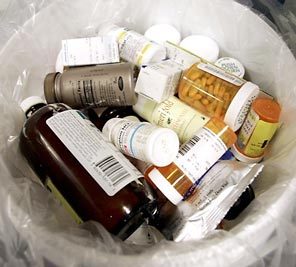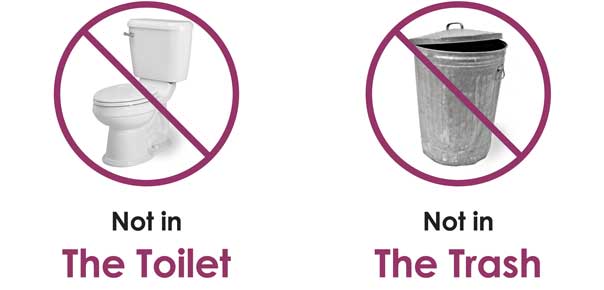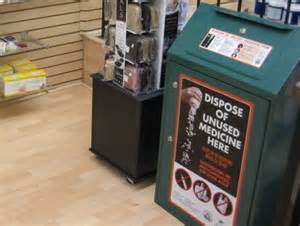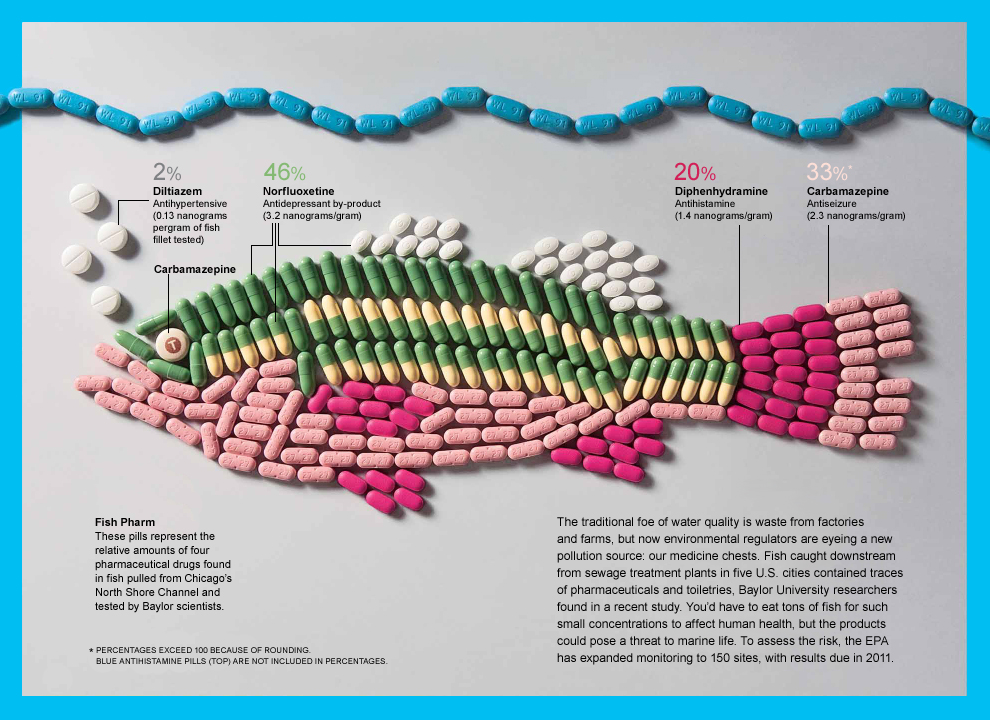 The pharmaceutical industry has soared in recent years, improving the health of the nation and ensuring that we live longer than ever before, with the life expectancy of the average Australian now exceeding 82 years of age. There is no denying that there are numerous and incredible benefits of modern pharmaceuticals and everything that the industry encompasses. The flip side of this, though, is that many of those prescribed pharmaceutical products are disposed of incorrectly and end up in the world’s waters, having a negative effect on our oceans as well as on the animals that live within them.
The pharmaceutical industry has soared in recent years, improving the health of the nation and ensuring that we live longer than ever before, with the life expectancy of the average Australian now exceeding 82 years of age. There is no denying that there are numerous and incredible benefits of modern pharmaceuticals and everything that the industry encompasses. The flip side of this, though, is that many of those prescribed pharmaceutical products are disposed of incorrectly and end up in the world’s waters, having a negative effect on our oceans as well as on the animals that live within them.
In recent years, scientists have drawn attention to the problems that pharmaceuticals are causing in our oceans and have raised concerns about the high levels of pharmaceutical residues that they are detecting in rivers and coastal waters across the world. This new environment threat has the potential to cause adverse effects in both humans and aquatic species, and is something that not only requires additional research but should also cause national concern.
Pharmaceutical pollution into our oceans and other waterways is a manmade problem: these products are being disposed of incorrectly on both as individual and on a corporate level. The number of individuals who dispose of any unused medication in their possession by simply putting it into their everyday waste and sending it to landfill is eye watering. Many of these landfills leak their liquid waste directly into the ocean: pharmaceuticals flushed down the toilet and sent to sewage treatment plants have the same fate. Combine this with the number of pharmaceutical companies and hospitals that are disposing of their excess medications incorrectly, and what you are left with is a truly global problem. These problems are not only restricted to the incorrect disposal of human pharmaceuticals: veterinary pharmaceuticals and pharmaceuticals that are added to animal feeding operations also have routes back into the ocean during their disposal. What’s more, the effects we are seeing in the ocean now seem to be the result of an historic problem: in the 1970s, pharmaceutical waste was regularly (albeit surreptitiously) dumped into the deep sea as a legitimate method of waste disposal. So what, exactly, are the effects that we are seeing in our oceans as a result of this incorrect pharmaceutical disposal, both now and all those years ago?
 The Known and Unknown Effects of This Phenomenon
The Known and Unknown Effects of This Phenomenon
The effects that these pharmaceuticals will have on our oceans and on the marine life that lives within it has yet to be fully researched and understood. No study has been conducted, at this stage, to show the effects that pharmaceutical traces within the environment will have on humans, and very limited research has been undertaken to look at the effects on the wider environment, and on the sea life living within this environment. However, we are aware that aquatic organisms are especially vulnerable to their effects: many fish and other aquatic species are experiencing increased feminisation as a result of their exposure to birth control pills and other hormonal medications disposed of in the oceans. These pharmaceutical effects in smaller species can and will quickly make their way up the food chain, with the levels of pharmaceuticals being found in the blood plasma of larger fish and other sea mammals causing concern for the effects that are clearly yet to be discovered, but which could be catastrophic for our oceans and sea creatures.
 When a problem seems as large and insurmountable as the problems our ocean currently face as a result of this pharmaceutical crisis, and is easy to feel insignificant and like there is nothing you can do. However, every positive action can have an effect, and help to make a change: when you’re disposing of your pharmaceuticals, always dispose of them properly. If you’re unsure about the best way to do so, return them to your doctor or drug store who will be able to dispose of them within the strict guidelines laid out by the government: if every individual did this, the problem would be quickly minimised: your actions now really can help to make a difference.
When a problem seems as large and insurmountable as the problems our ocean currently face as a result of this pharmaceutical crisis, and is easy to feel insignificant and like there is nothing you can do. However, every positive action can have an effect, and help to make a change: when you’re disposing of your pharmaceuticals, always dispose of them properly. If you’re unsure about the best way to do so, return them to your doctor or drug store who will be able to dispose of them within the strict guidelines laid out by the government: if every individual did this, the problem would be quickly minimised: your actions now really can help to make a difference.
Further Reading
“Trends in life expectancy”, Australian Institute of Health and Welfare, http://www.aihw.gov.au/deaths/life-expectancy/#trends
“As pharmaceutical use soars, drugs taint water and wildlife”, Yale Environment 360, http://e360.yale.edu/feature/as_pharmaceutical_use_soars_drugs_taint_water_and_wildlife/2263/
“Pharmaceuticals in the environment”, Radio National, http://www.abc.net.au/radionational/programs/healthreport/pharmaceuticals-in-the-environment/3675326
“Pharmaceuticals in coastal waters”, National Oceanic and Atmospheric Administration, http://www.noaa.gov/features/protecting_1208/pharmaceuticals.html
“The environmental impact of the pharmaceuticals industry and the way forward”, Kwik Med, http://www.recovery.org/pro/articles/coloring-outside-the-lines-of-forgiveness/
“Dumping pharmaceutical waste in the deep sea”, Deep Sea News, http://www.deepseanews.com/2008/04/dumping-pharmaceutical-waste-in-the-deep-sea/
“Safe pharmaceutical disposal”, Citizens Campaign for the Environment, http://www.citizenscampaign.org/campaigns/pharmaceutical-disposal.asp
Text provided by Anne Foy – Former Business Manager in the Healthcare Industry

Pingback: There is something much bigger then climate change we should be worrying about. – Lee's Stuff
Comments are closed.